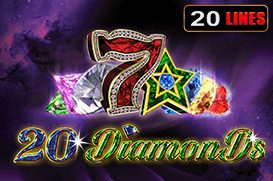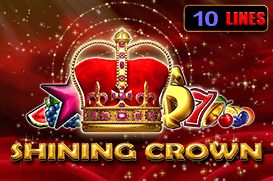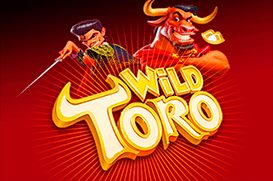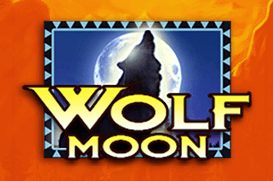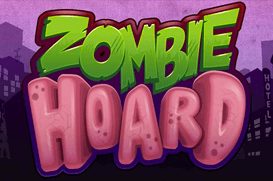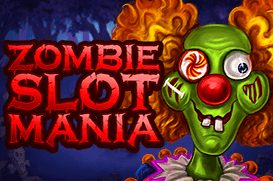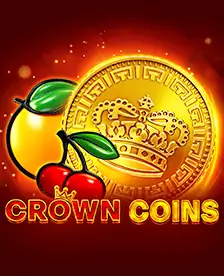Играть на официальном сайте Флагман Казино
Казино Flagman дарит новичкам бесплатные спины и проценты на депозиты. Для опытных пользователей предусмотрен еженедельный кэшбэк до 20% и бонус 50% от суммы депозита, начисляются статусные баллы за ставки реальными деньгами в азартных играх, функционирует программа лояльности с подарками и эксклюзивными вознаграждениями. Организован приветственный пакет для спорта, предусмотрен еженедельный фрибет.
В игротеке масса слотов со стандартными коэффициентами и джекпотом, на сайте Флагман Казино есть рулетки, настольные игры, мгновенные лотереи, лайв трансляции, работает колесо фортуны. Клиенты могут участвовать в лотереях и сетевых промоакциях, турнирах, где получают фриспины и денежные средства в качестве выигрыша. Все опции официального сайта в РФ продублированы на актуальном зеркале. Можно делать ставки биткоинами и бесплатно, играть на рубли с мобильного телефона в режиме 24/7.
| Начало работы | 2025 |
| Лицензия | Кюрасао |
| Способы пополнения/вывода | Visa, Mastercard, Мир, криптовалюта, электронные кошельки |
| Бонусы | Спорт, казино |
| Провайдеры Flagman Casino | Всего 71 бренд — Push Gaming, Skywind, Kalamba Games, Nolimit City, Thunderkick, GameArt, Iron Dog Studio, иные |
| Устройства, на которых доступен основной сайт и официальное зеркало | ПК, смартфоны на Андроид, iOS |
| Скорость выплат | Криптовалюта — мгновенно, банковские карты — 24 часа |
| Саппорт | 24/7 |
Флагман Казино: рабочее зеркало сайта
Рабочее зеркало на сегодня помогает посетителям обойти блокировку, играть в азартные развлечения в тот момент, когда вход на сайт официальный закрыт. Нет различий между основным сайтом и рабочим зеркалом по каталогу азартных развлечений, по структуре и дизайну. Отличаются адреса расположения. Самый быстрый и безопасный поиск зеркала — узнать адрес расположения у представителей службы поддержки. Искать рабочее зеркало Flagman Casino на сегодня через систему браузера небезопасно — возникает риск перехода на фейковый ресурс. Официальное зеркало — это безопасность конфиденциальной информации, транзакций.
Пребывая на зеркальном сайте клиент:
- Заключает пари на спортивные дисциплины.
- Участвует без регистрации в слотах и других развлечениях.
- Играет на реальные деньги в аппаратах с джекпотом и стандартными коэффициентами по выплатам.
- Активирует и отыгрывает бонусные предложения.
- Пользуется привилегиями системы статусов.
- Оформляет заявки на вывод денег.
- Выполняет через личный кабинет Флагман Казино пополнение счета.
- Запрашивает помощь службы поддержки.
Мобильное приложение Flagman Casino
Мобильная версия — аналог компьютерного сайта, но в более компактном воспроизведении, с доступом к азартному контенту из любой местности, отовсюду где может находиться пользователь — из дома, общественного транспорта, улицы, загородной зоны. Мобильная версия адаптирована под популярные платформы , обеспечивающие работоспособность портативных устройств, отменно воспроизводит лайв трансляции, слоты топовых провайдеров, но не позволяет выполнять обход блокировки Флагман Казино, в отличие от автономных приложений. В мобильном казино предусмотрены ставки на спорт с просмотром матчей в режиме реального времени.
По сравнению с браузерной версией для смартфонов, для использования приложения необходима загрузка софта. Файл для Андроид расположен на официальном сайте, ссылка на загрузку программы имеется на его резервной копии. Софт загружается быстро, обычно у клиентов нет проблем по его распаковке. Программные подсказки помогут корректно установить на Айфон или Андроид Flagman Casino приложение. Преимущества и возможности программы указаны в таблице
| Быстрая регистрация | Доступно оформление аккаунта по телефону, электронной почте, через социальную сеть |
| Экономия интернет трафика | Все опции казино сосредоточены в приложении, которое достаточно загрузить единожды и все время пользоваться сервисом |
| Обход блокировки | После загрузки приложения не нужно пользоваться зеркалом, провайдер никогда не заблокирует сервис |
| Доступны все бонусы | Все предложения актуальны для пользователей приложения, за скачивание оператор казино Flagman может выделить фриспины |
| Полноценный каталог азартных развлечений | Игровые автоматы, Лайв дилеры, покер, рулетка, настолки |
| Ставки на спорт | Более 40 дисциплин доступны для заключения пари |
| Быстрое пополнение счета и оперативный вывод средств | Заявки обрабатываются моментально |
| Участие в акциях | Все игроки через приложение могут участвовать в турнирах, розыгрыше джекпота, лотереях |
Флагман Казино: ассортимент игровых автоматов и другие развлечения
В программное обеспечение платформы включены развлечения лучших брендов, заслуживающие внимания опытных и требовательных игроков. В клубе можно играть на реальные деньги в:
- Слоты.
- Видеопокер.
- Рулетку.
- Настольные развлечения с живыми дилерами.
- Прибыльные моментальные лотереи.
- Кено.
- Краш.
В Флагман Казино игровые слоты — библиотека из 6000+ моделей с индивидуальными характеристиками. Игровые автоматы — излюбленный контент новых и профессиональных пользователей, которые предпочитают это направление азарта за простоту правил, индивидуальность и высокий уровень отдачи. Разработчики создают автоматы с фруктовыми и книжными символами, пирамидами, персонажами. В каталогах многих разработчиков представлены игровые автоматы с ужасами и фантастическими сюжетами, героями пиратских баталий и фэнтези.
Большинство аппаратов предлагается в Flagman Casino с дополнительными опциями — бонусные множители, тематические раунды, риск-игры, бесплатные спины, джекпотом. Они повышают уровень отдачи слота, придают геймплею разнообразие и увлекательность.
Как обойти блокировку Flagman Casino
Кроме официального зеркала, обойти блокировку помогут иные способы — приложения, специализированные сервисы. Для скачивания программы потребуется минимум времени, причем пользователь не рискует загрузить ПО с вирусами. Активировать скачивание Флагман Казино нужно только с официальных источников — зеркала или сайта.
Администрация рекомендует пользоваться надежными и проверенными VPN-сервисами:
- HideMy.name — простота скрытия действий в Сети, защита паролей и переписки. Подходит для любого устройства.
- DotVPN — обход блокировок доступа к сайтам с встроенным межсетевым экраном, блокировщиком рекламы.
Подключить VPN-сервисы доступно к любому браузеру.
Флагман Казино: безопасность и защита личных данных
Безопасность игроков в Flagman Casino строго соблюдается администрацией, которая использует для этого несколько методик. Клиенты при осуществлении финансовых операций обмениваются данными с платежными операторами по зашифрованным каналам связи, что исключает хищение средств и сведений. Аккаунты пользователей защищены от взлома, поэтому конфиденциальная информация остается анонимной для посетителей интернета и сторонних организаций. Чтобы денежные средства не смогло вывести третье лицо, предусмотрена идентификация всех зарегистрированных игроков. Процесс верификации можно пройти через официальный сайт Flagman Casino, на зеркале, в приложениях.
Внесение депозита в Flagman Casino
Минимальный депозит — 300 руб для старта в играх на деньги, для получения бонусов из приветственного пакета — 1000 руб. Сумма депозита, внесенного любым из предложенных методов, зачисляется без комиссионных, в течение пары секунд. Основные способы пополнения баланса — криптовалюта, банковские карты, электронные платежные системы. Чтобы активировать пополнение счета, необходимо:
- Выполнить вход в личный кабинет Flagman Casino.
- Выбрать комфортный вариант перечисления средств.
- Указать сумму перевода.
- Подтвердить транзакцию.
Для получения выплаты необходимо оформить заявку — клиент указывает способ и сумму. При выводе денег комиссионные рассчитываются индивидуально для каждого игрока. После рассмотрения запроса средства будут отправлены на счет, если финансовая служба не откажет в выплате по причине отсутствия верификации, наличия неотыгранных бонусов, нарушения правил, недостаточной суммы на балансе — минимум 500 руб. Флагман Казино анонсирует выплату средств в течение 24 часов после одобрения заявки.
Отзывы Флагман Казино
Оставить отзыв о Flagman Casino














